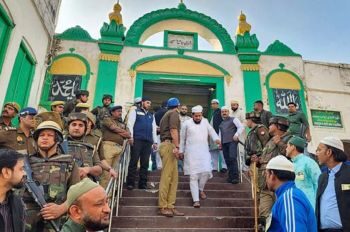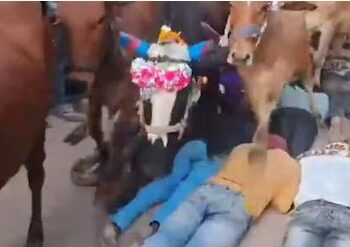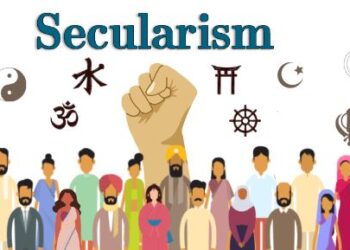National Eligibility cum Entrance Test (NEET) that was introduced country wide has been denying the prospective students to get admission in medical college to become physicians. Different systems of education at higher secondary school level are in practice at State level wherein most of the schools are adopting the respective State Board syllabus. But the candidates have to appear for NEET, which is being conducted in Central Board of Secondary Education (CBSE) syllabus. The students who have scored high marks in their higher secondary school final exams cannot get medical admission unless they secure the competitive marks in the NEET. The students who had studied 12 years in State Board syllabus become ineligible to get admission if they could not secure sufficient marks in the NEET. The injustice of deciding the medical admission for the students in an entirely different syllabus based NEET is not rectified till date.
The students hailing from rural areas and the marginalized communities are the major victims of the NEET. But till date no remedial measure has been taken by the Union government under whose direction NEET is conducted. When the State governments represented to the Union government to permit them conduct entrance exam on their own, it was objected on the ground that common entrance test is a must for maintaining standards. NEET is meant for both undergraduate and post graduate medical courses.
Earlier when NEET was introduced, exemption was given to eight AIIMS, JIPMER (Puducherry) NIMHANS (Bengaluru) and PGI (Chandigarh) stating that these institutions were conducting exclusive entrance test for their admission. Now, all these medical colleges were brought under the purview of the NEET.
Contrary to the stand on NEET as common for all the post graduate medical courses, now, the Union government has proposed to conduct ‘Special Entrance Test’ for the select eleven medical colleges (Institutes of National Importance – INI). Instead of sustaining the existing NEET, though not abolishing, the Union government moves in wrong pitch to conduct ‘Special Entrance Test’ as INI-CET (Combined Entrance Test).The denial is likely to intensify in getting PG admission to medical college for the downtrodden communities. In the prospectus for INI-CET to be the channel of PG medical admission in 11 colleges, it is stated that reservation for the oppressed sections would be adhered as per the prevailing policy in the respective colleges (the internal reservation for MBBS candidates graduated from the respective colleges would be followed).
Equal footing for the appearing candidates to apply for medical admission is negated by the Special Entrance Test, instead, not selecting meritorious students with high marks in their prerequisite course will again ditch the prospective candidates from securing post graduate medical admission in the select institutes, as categorized by the Central Government.
The Constitution permits the States to exercise their governing power on education. Based on that the States are starting medical colleges with their financial resources. But deciding admission to the medical colleges is not as per the State’s Policy.
It is ironical on the part of the Union government to announce reservation as per the existing policy in the respective colleges when reservation to the marginalized sections as per the respective State Reservation Policy are continuously denied in the All India Quota, contributed by the States till date.
What is the basis for identifying only 11 medical colleges as Institute of National Importance and giving exemption to them from the purview of PG-NEET? The renowned medical colleges like Madras Medical College (MMC), started in 1665 which is known worldwide for the contribution of its talented medical graduates and post graduates to the global medical fraternity is not considered as an Institute of National Importance. Their services are being well recognised and beneficial to humankind. There are many such renowned medical colleges which are not part of INI, that means, they are all not important and remain insignificant for the categorization made by the Centre.
The argument is not why colleges like MMC is not included in the eleven INI, but to expose the biased approach in the categorization. What is the contribution of these eleven INIs during the COVID-19 pandemic lock down? What significant contributions have been made by the rest of the medical colleges.
Whether the categorisation as INIs has got any correlation to the medical services rendered by them in comparison to the rest of the medical colleges in the country.
The Central government does play game using the rights of getting medical education by the candidates hailing from marginalized sections has become a routine affair.
The question arises on for whose benefit and prospects such changes are brought; definitely not in favour of the candidates from marginalized sections.
Until the aggrieved realize the disadvantages and oppose, the changes brought the Centre would continue to bring changes one by one. It is the prime responsibility of political parties to expose such disfavours meted to the downtrodden, and the oppressed sections.
Let the political opposition unite themselves for the cause of Social Justice!









